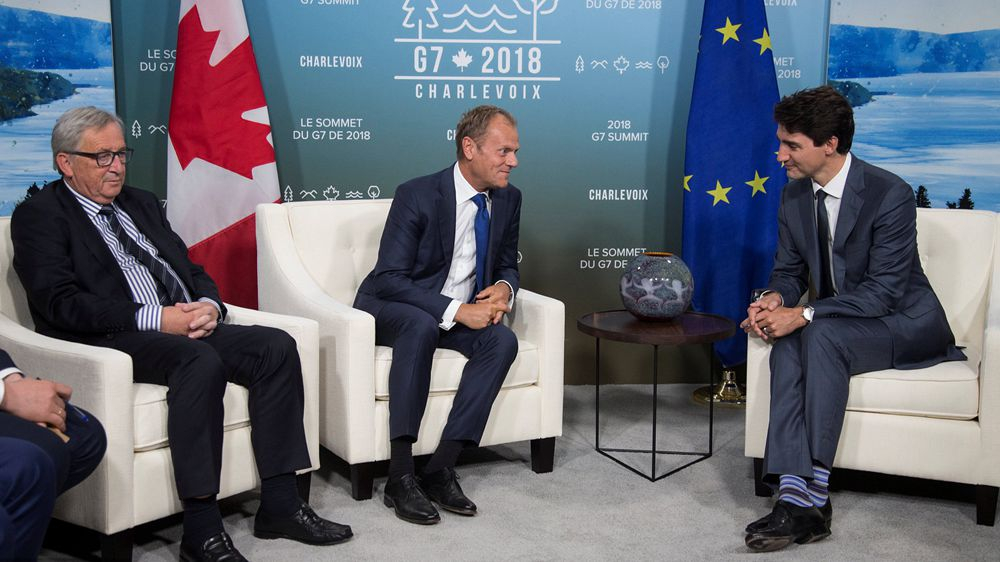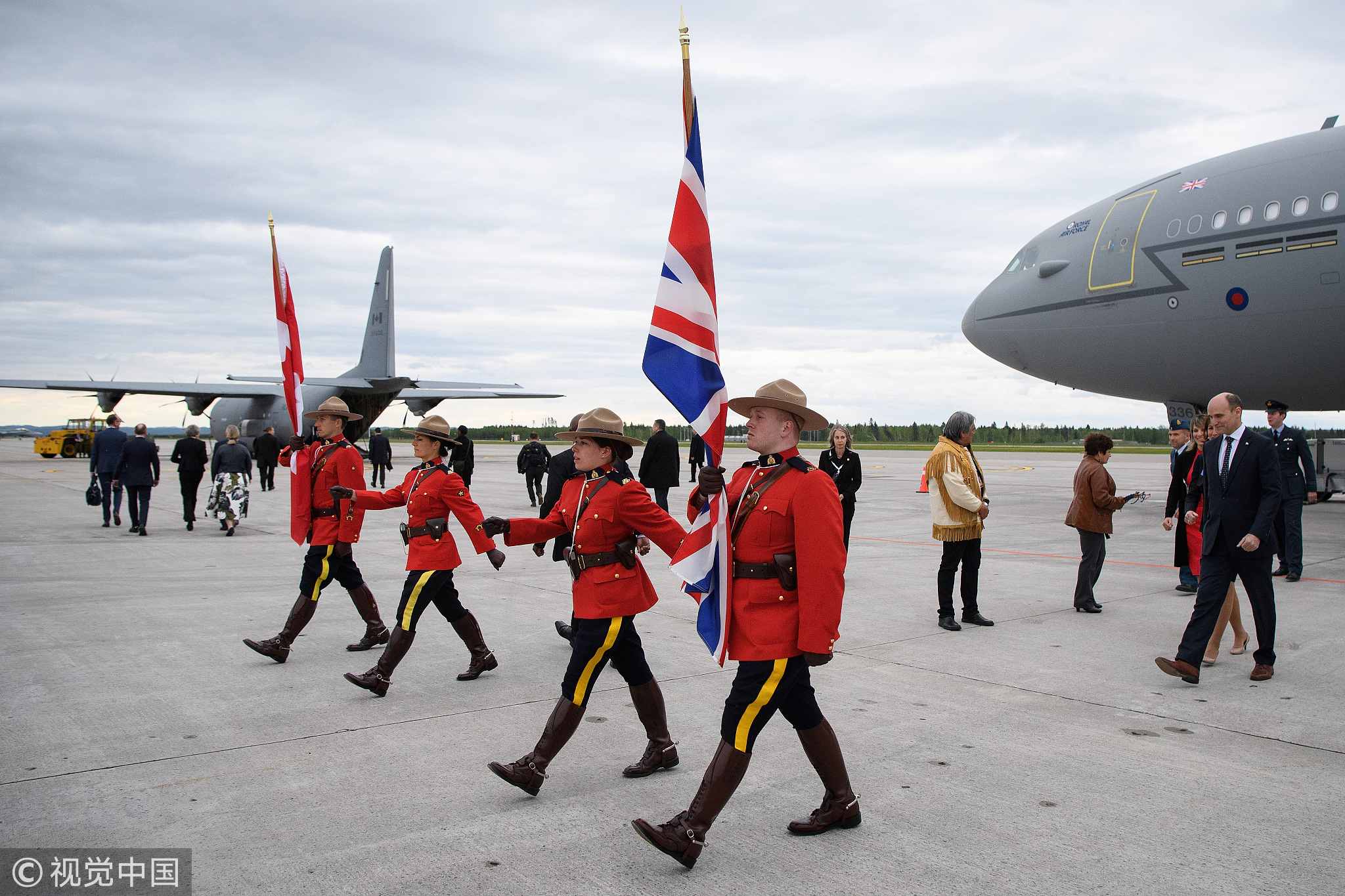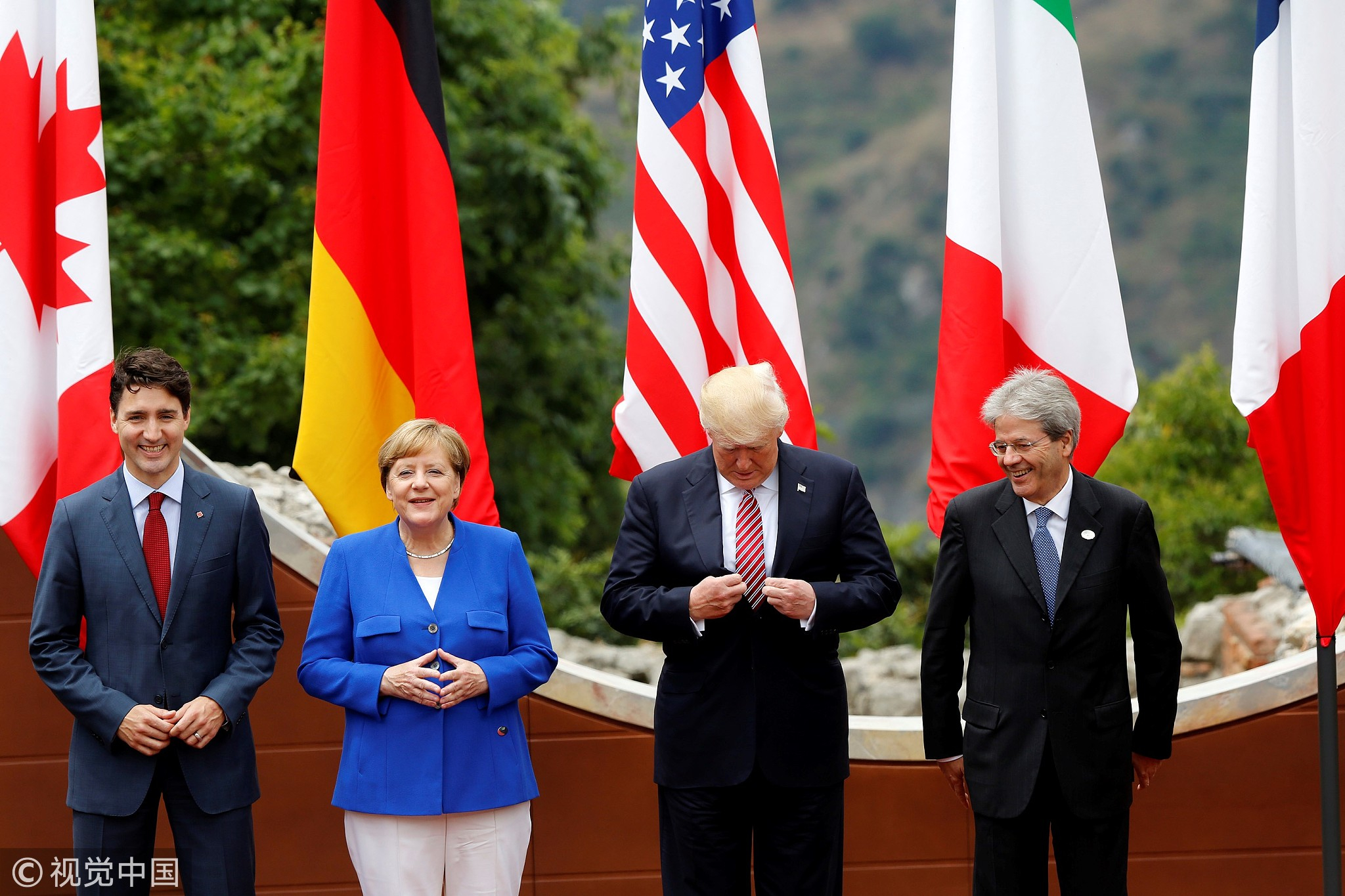
World
13:50, 08-Jun-2018
Trade tensions threaten G7 meeting in Canada
By Roee Ruttenberg

Last year, at the Group of Seven (G7) Summit in Italy, US President Donald Trump followed behind in a golf cart, as leaders of six other industrialized nations took a short stroll. Many said it symbolized Trump’s disconnect from America’s natural economic allies.
One year later, that distance may be more than just symbolic.
This month, the Trump administration announced it was slapping import duties on steel and aluminum originating from Canada, this year’s G7 host. Canadian Prime Minister Justin Trudeau called it insulting.
“These tariffs are unacceptable,” Trudeau said. “For the past 150 years, Canada has been the most solid partner of the United States, and it is inconceivable."
Trudeau threatened to slap back dollar-for-dollar tariffs on the US. “We have to believe that common sense will prevail at some point, but we do not currently see any signs on the part of the United States.”

Canadian mounted police carry the Union and Canadian flags after the arrival of British Prime Minister Theresa May at CAF Bagotville airfield ahead of the G7 Summit in Saguenay, Canada, June 7, 2018. /VCG Photo
Canadian mounted police carry the Union and Canadian flags after the arrival of British Prime Minister Theresa May at CAF Bagotville airfield ahead of the G7 Summit in Saguenay, Canada, June 7, 2018. /VCG Photo
The Trump administration also refused to exempt the European Union from the tariffs. The moved has angered Brussels and Germany, Europe’s biggest economy.
German Chancellor Angela Merkel has not been able to rein-in the American president on trade, nor diplomacy. She flew to Washington in April, urging Trump to not scrap the Iran nuclear deal. He did so anyway.
Her trip came just days after a similar voyage made by French President Emmanuel Macron. He, too, was unsuccessful. That’s despite his “bromance” with Trump, as some have dubbed their relationship.
But a recent call between the two was described as “terrible,” while last week, French Finance Minister Bruno Le Maire warned: the US – under Trump – was isolating itself.
“America First,” some say,” has become “America alone.”
Trump angered the French just days after the last G7, by pulling the US out of the Paris Agreement on climate change.
The French and Canadian leaders met this week, in part, to sort out the G7 agenda. Clean energy is officially a part of it, along with gender-equality and economic growth – for all. Many are asking if the US will get behind the summit’s goals.

May 26, 2017: (From L to R) Canadian Prime Minister Justin Trudeau, German Chancellor Angela Merkel, US President Donald Trump and Italian Prime Minister Paolo Gentiloni pose for a group photo in the ancient amphitheater at the G7 Taormina summit on the island of Sicily in Taormina, Italy. /VCG Photo
May 26, 2017: (From L to R) Canadian Prime Minister Justin Trudeau, German Chancellor Angela Merkel, US President Donald Trump and Italian Prime Minister Paolo Gentiloni pose for a group photo in the ancient amphitheater at the G7 Taormina summit on the island of Sicily in Taormina, Italy. /VCG Photo
This week’s summit also comes just days before Trump heads to another meeting in Singapore. There, he’ll sit face-to-face with DPRK leader Kim Jong Un. The G7 meeting will give Trump another chance to assuage fears from Japan – the group’s only Asian member – that its interests in the region are being sidelined in exchange for Washington’s.
Tokyo is pressing the Trump administration to help secure the release of Japanese nationals being held in the DPRK.
Trump’s top economic adviser, Larry Kudlow, likened the distance between his boss and the other leaders on trade to a family quarrel.
“Don’t blame Trump,” Kudlow said this week. “Blame nations that have broken away from those conditions” [of free-trade policies]. “Trump's trying to fix this broken system,” he added.
But there are powerful incentives for these seven countries to get along. They make up nearly half of the world’s GDP, and have essentially served as the foundation of the global economy since the end of the Cold War. With disputes heating up between G7 members, that stability is under threat.
(Cover: Canada's Prime Minister Justin Trudeau (R) meets with European Council President Donald Tusk (C) and European Commission President Jean-Claude Juncker (L) prior to the G7 Summit in La Malbaie, Quebec, Canada, June 7, 2018. /VCG Photo)

SITEMAP
Copyright © 2018 CGTN. Beijing ICP prepared NO.16065310-3
Copyright © 2018 CGTN. Beijing ICP prepared NO.16065310-3